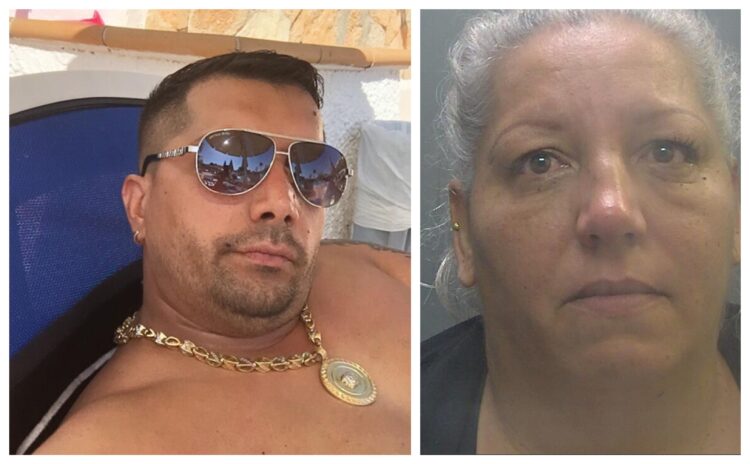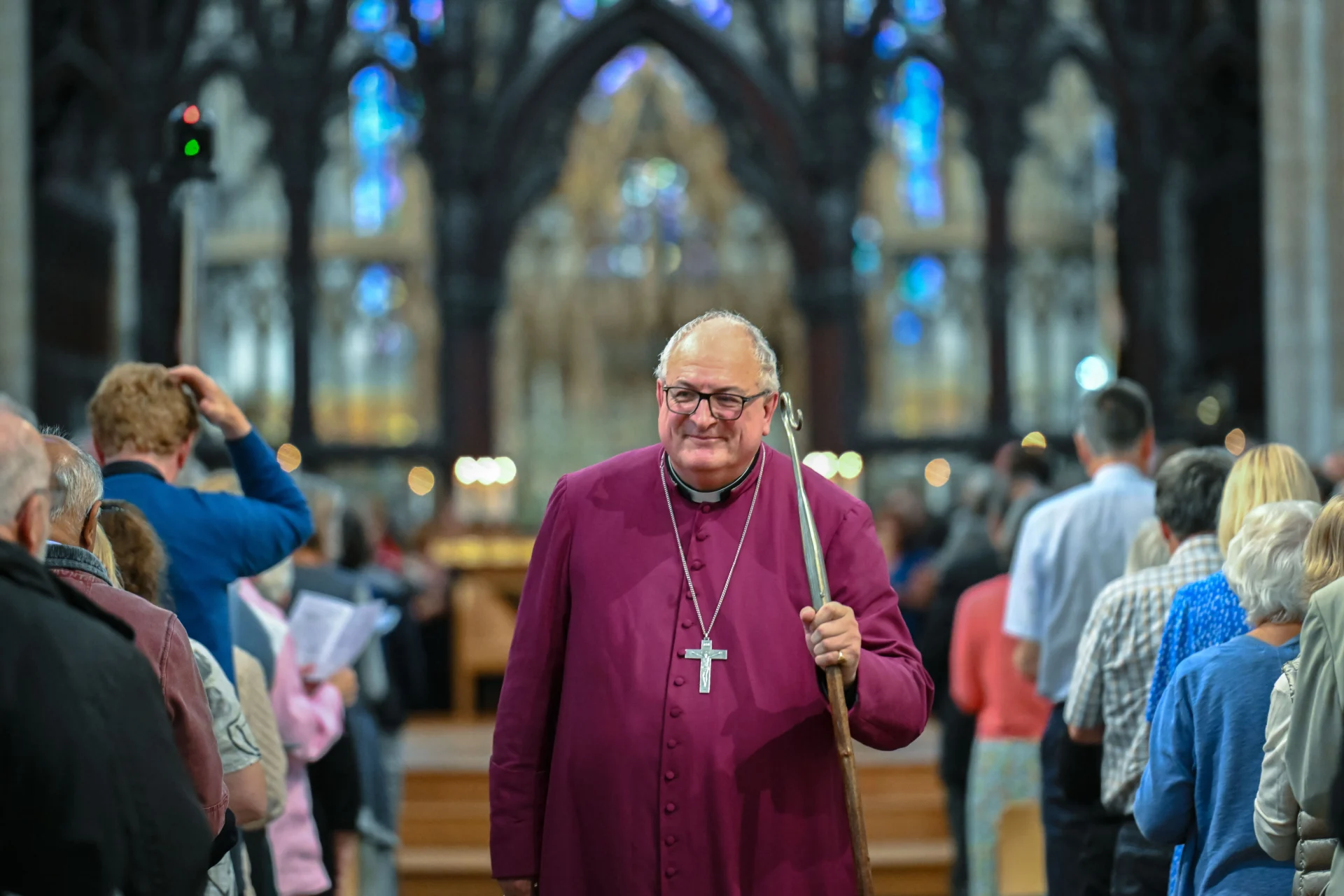Modern slavery victims from the Czech Republic were forced to work up to 70 to100 hours a week at a McDonald’s in Cambridgeshire and a factory supplying bread products to supermarkets. Signs of modern slavery occurring in plain sight were missed for years, a BBC investigation has found.
A criminal gang forced a total of 16 victims to work at the fast-food restaurant in Caxton, Cambridgeshire and the factory in Hertfordshire and London which supplied Asda, Co-op, M&S, Sainsbury’s, Tesco, and Waitrose.
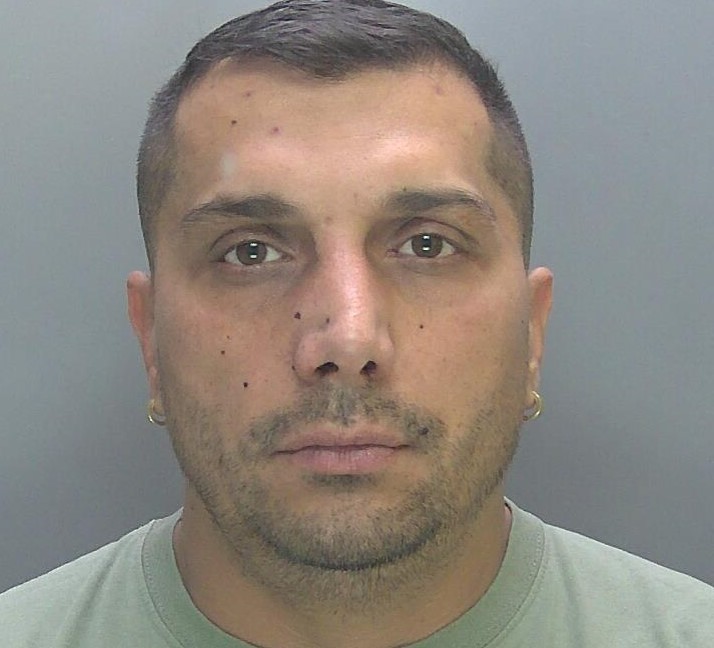
Ernest Drevenak, 46, began exploiting the men in 2015 and it continued until police were tipped off in 2019. IMAGE: Cambs Police
The victims were exploited for over four years, before finally being flagged to the police.
While victims lived on a few pounds a day in cramped accommodation – including a leaking shed and an unheated caravan – police discovered their work was funding luxury cars, gold jewellery and a property in the Czech Republic for the gang.
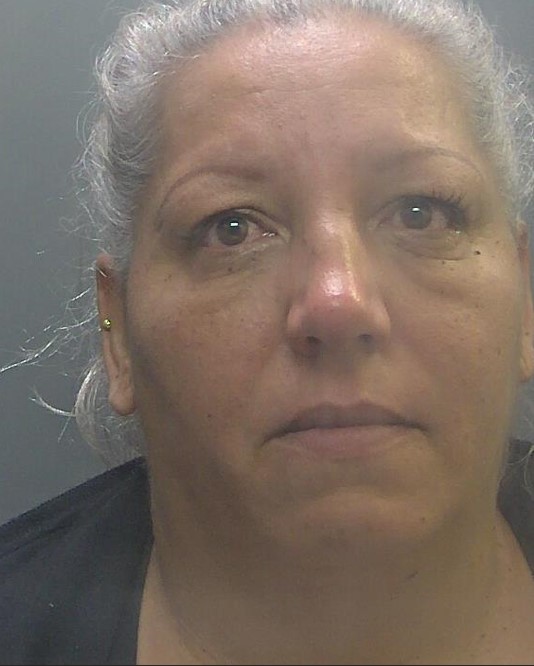
On several occasions, victims escaped and fled home only to be tracked down and trafficked back to the UK.
Ernest Drevenak, 46, and Veronika Bubencikova, 46, began exploiting the men in 2015 and it continued until police were tipped off in 2019.
The victims were all either homeless, unemployed or in very low paid jobs in the Czech Republic when they were approached individually by associates of the couple.
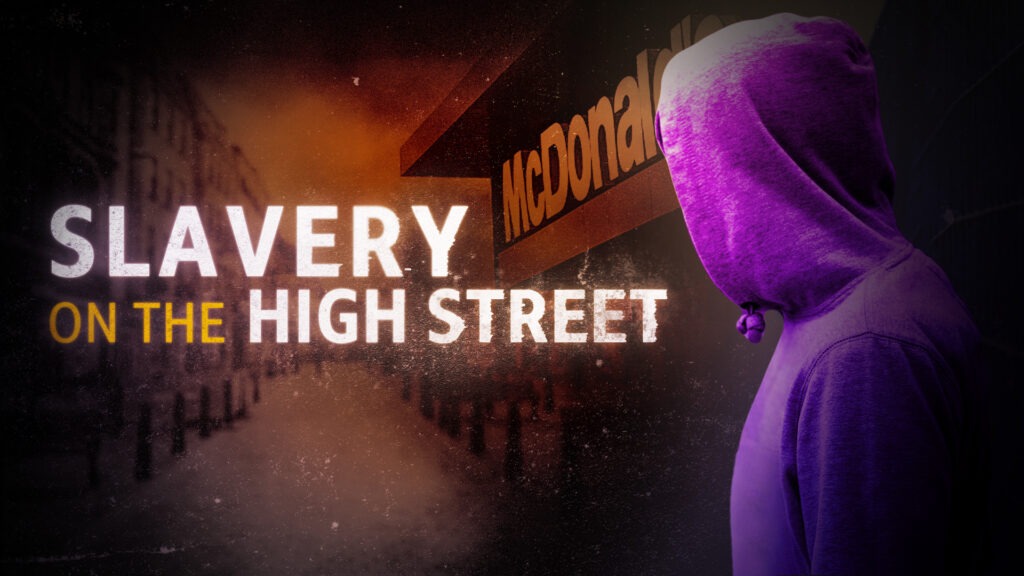
They were promised work, accommodation and a better life in the UK.
The associates put the victims in contact with Drevenak and helped to arrange transport to the UK.
When each of the victims arrived, Drevenak and Bubencikova helped them to get jobs at the McDonald’s on the A428, in Caxton Gibbet.
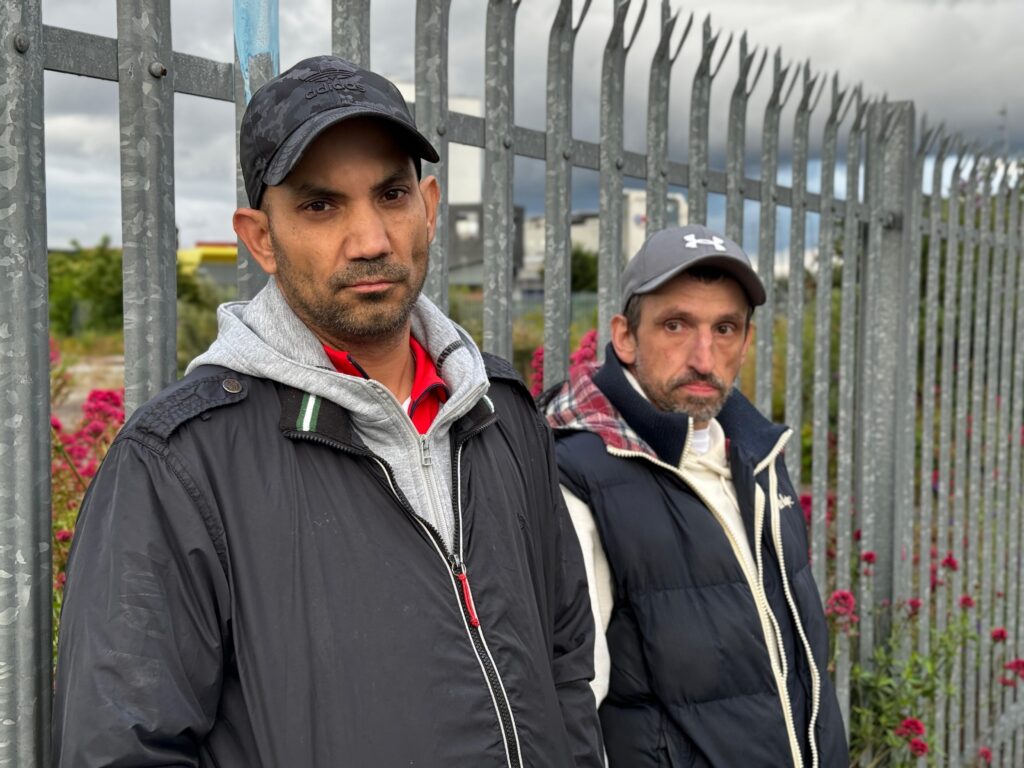
The men spoke little or no English, but the couple helped with filling in forms, completing online tests and the interview process.
All wages were paid into either bank accounts belonging to the couple or those they had control over.
The victims were paid between £40-120 in cash by the couple every two weeks, despite regularly working 12-16 hour shifts. The remaining balance was kept by Drevenak and Bubencikova.
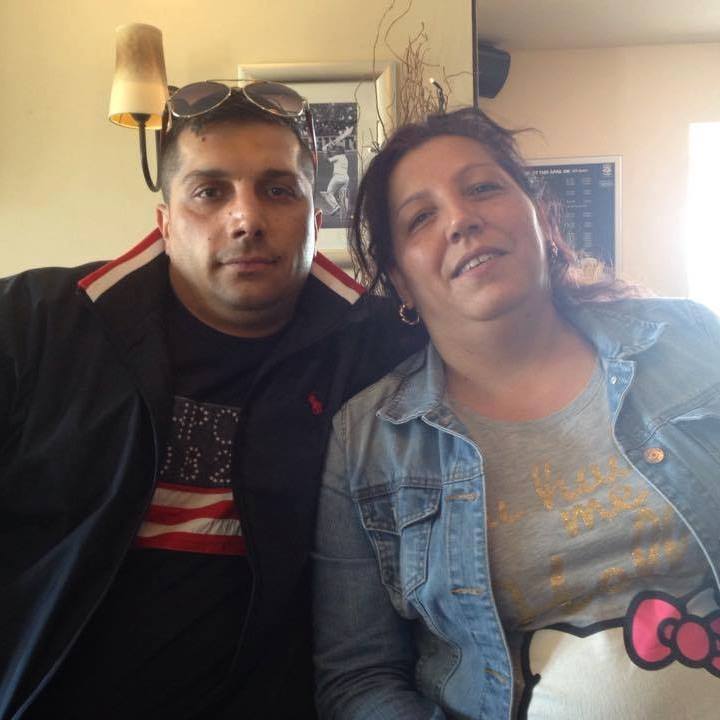
The men were provided with accommodation at various overcrowded properties, including the couple’s home in Upper Cambourne, where six shared a single room.

At one time, seven men, including the five victims, were staying in a two-bedroom park home near Cambridge.
When the victims were not working at McDonalds, they were forced to perform tasks such as cleaning, decorating and gardening for the couple.
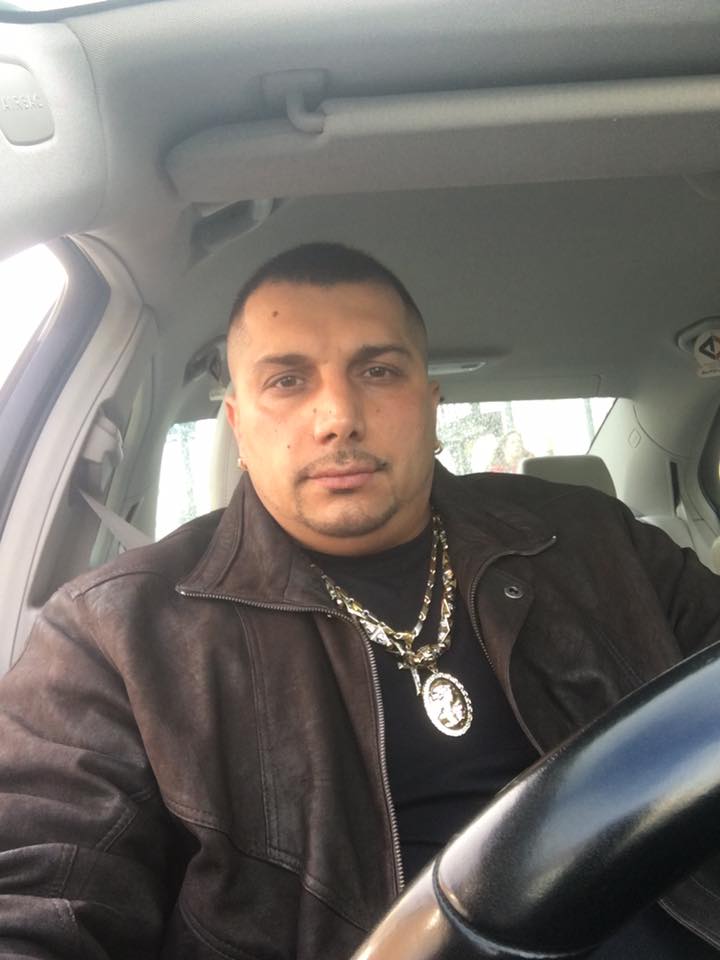
Drevenak and Bubencikova then fraudulently applied for working tax credits and child tax credits in the names of the victims despite there being no children.
In one instance fabricating the names of six children and claiming one of the victims had become responsible for these, all to boost the fraudulent benefit claims.
It is estimated the couple stole at least £200,000 from the men over the four-year period.
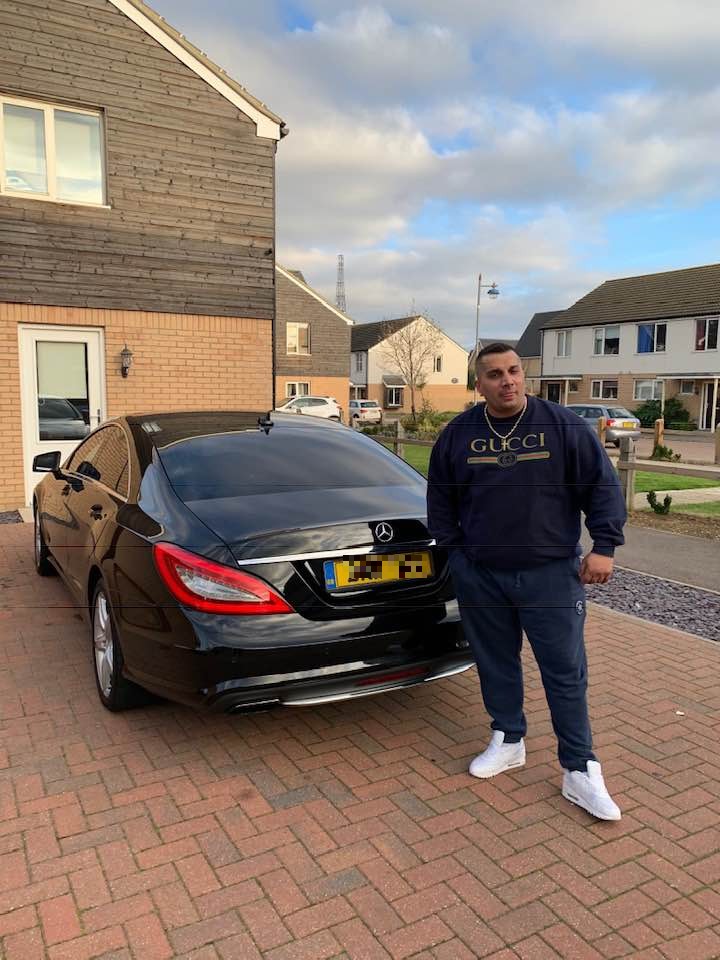
Reporting restrictions have prevented coverage of much of the case, but Slavery on the High Street, available on BBC iPlayer and broadcasting on BBC One in London and the East region on Monday 30 September, will reveal for the first time the true scope of the gang’s crimes.
These include trafficking the victims from the Czech Republic, forcing them to work up to 70 – 100 hours a week, confiscating their passports, and controlling them through fear and violence.
The victims earned at least the legal minimum wage, but the vast majority of their pay was stolen by the family-run criminal network, led by brothers Ernest and Zdenek Drevenak.
Two former colleagues of the victims who worked at the McDonald’s branch told the BBC the extreme hours the men worked – and the impact it had on them – was plain to see.
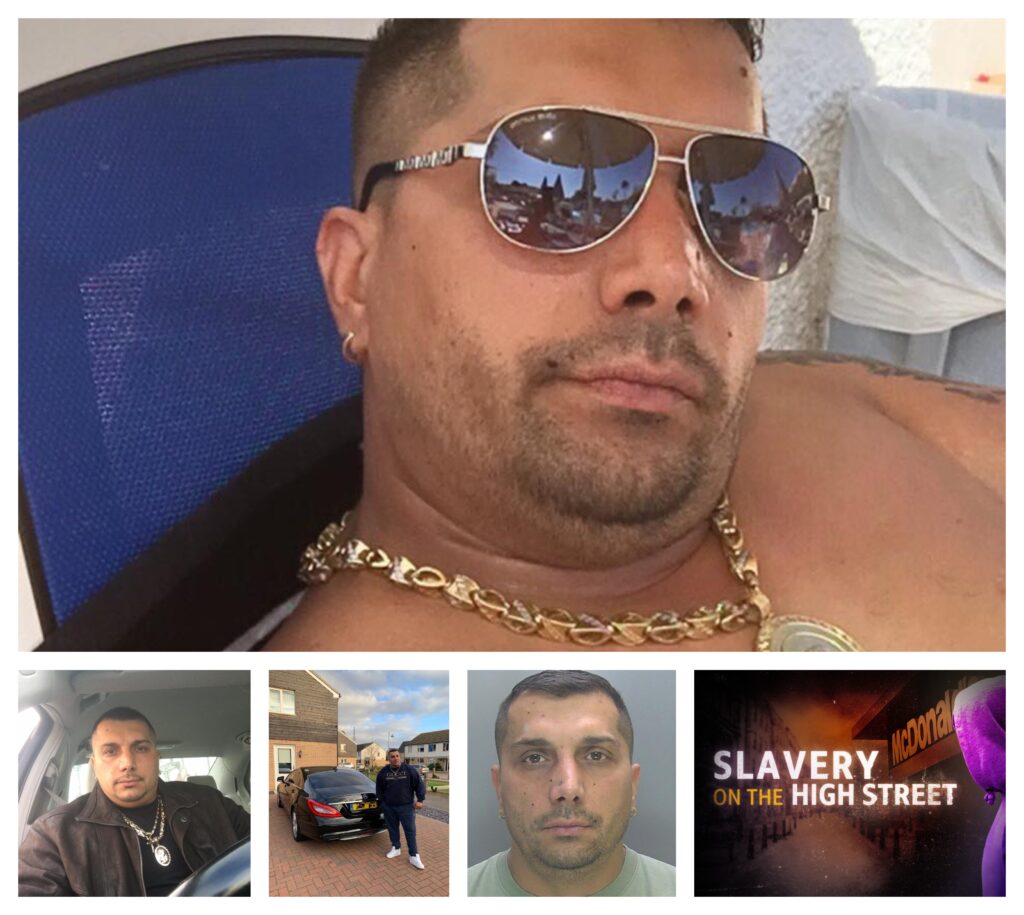
But well-established signs of slavery, including paying the wages of four men into one bank account, were missed. At the McDonald’s, at least four victims’ wages – totalling £215,000 – were being paid into one account, controlled by the gang.
Other undetected red flags included:
- Victims were unable to speak English, and job applications were completed by gang members, who were even able to sit-in on job interviews as a translator.
- Victims worked extreme hours at the McDonald’s – up to 70 to 100 a week. One victim worked a 30-hour shift. The UN’s International Labour Organization says excessive overtime is an indicator of forced labour.
- Multiple employees had the same registered address. Nine victims lived in the same terraced home in north London while working at the bakery.
Dame Sara Thornton, the former independent anti-slavery commissioner, said: “It really concerns me that so many red flags were missed, and that maybe the companies didn’t do enough to protect vulnerable workers.”
She added that she would have expected the retailers to be doing “pretty thorough due diligence,” saying that they normally “take much greater care about their own brand products because that’s their reputation that’s on the line”.
Det Sgt Chris Acourt, who led the Cambridgeshire Police investigation, said there were “massive opportunities” that were missed to detect the slavery and alert authorities sooner.
He said: “Ultimately, we could have been in a situation to end that exploitation much earlier had we be made aware.”
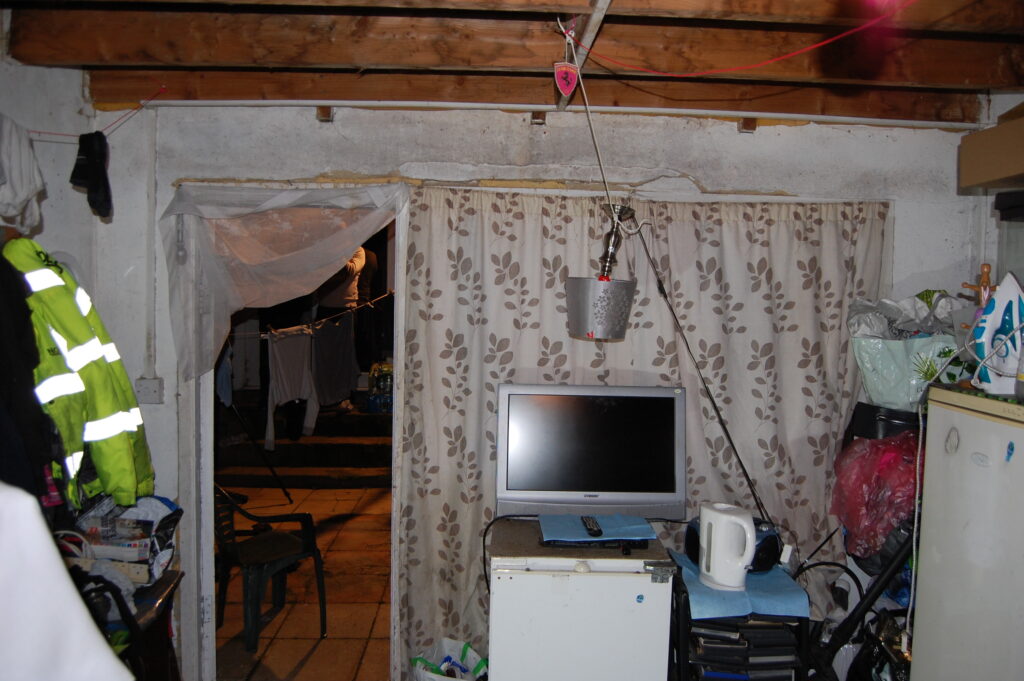
Modern slavery victims were provided with accommodation at various overcrowded properties, including the couple’s home in Upper Cambourne, where six shared a single room. IMAGE: BBC Local Investigations
Pavel, one of the victims – who waived his legal right to anonymity – was homeless in the Czech Republic when he was approached by the gang in 2016.
He says he was lured in with the false promise of a well-paid job in the UK, where he could at the time work legally. But the reality of his experience has left lasting scars. He says: “You can’t undo the damage to my mental health, it will always live with me.”
“We were afraid… If we were to escape and go home, [Ernest Drevenak] has a lot of friends in our town, half the town were his mates.
“I do feel partially exploited by McDonald’s because they didn’t act… I thought if I was working for McDonald’s, that they would be a little bit more cautious, that they will notice it.”
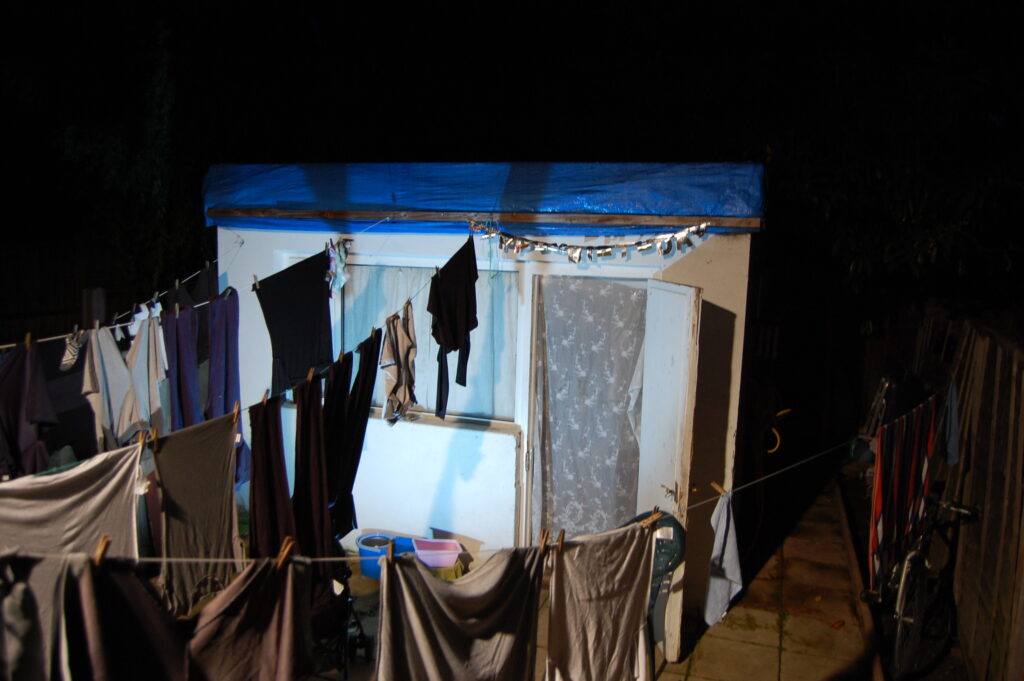
Modern slavery victims were provided with accommodation at various overcrowded properties, including the couple’s home in Upper Cambourne, where six shared a single room. IMAGE: BBC Local Investigations
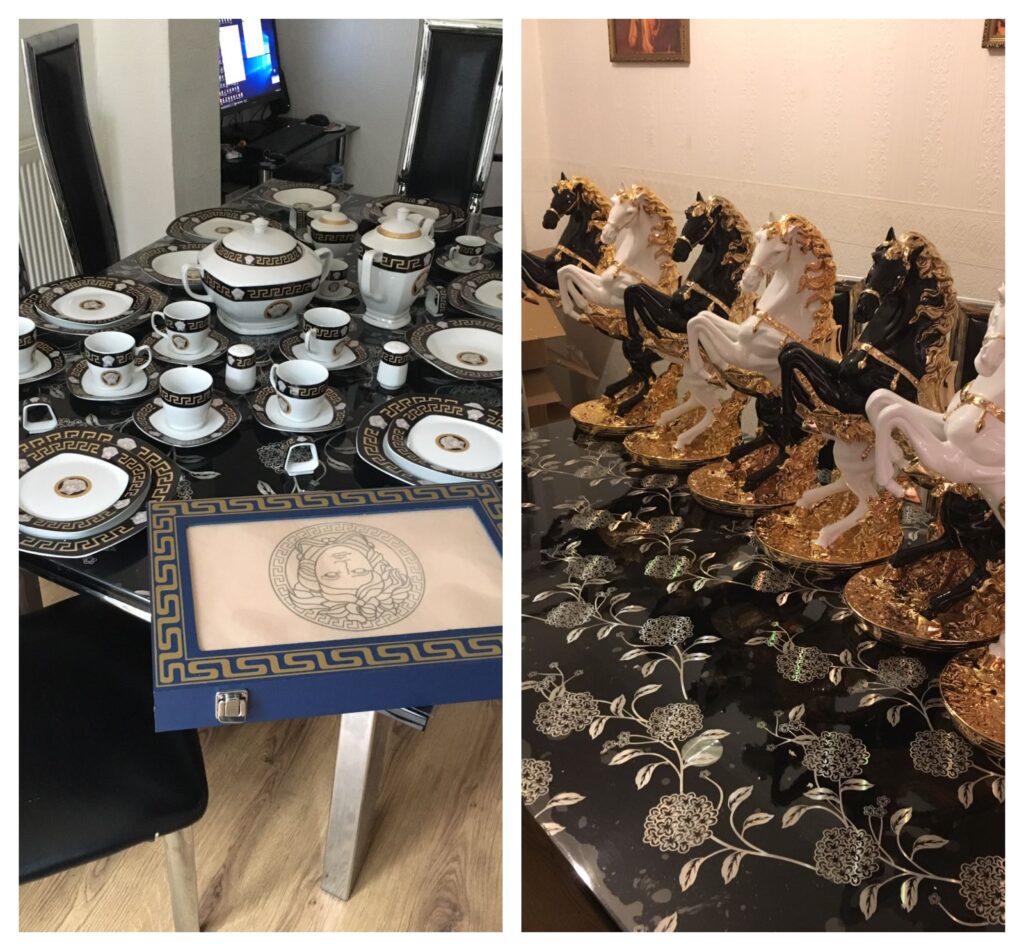
Det Insp Melanie Lillywhite said that the gang “treated their victims like livestock” feeding them just enough “to keep them going”.
She added that victims were controlled by “invisible handcuffs”, monitored by CCTV, prevented from using phones or the internet and unable to speak English. “They really were cut off from the outside world,” she said.
The McDonald’s outlet in question was run by two different franchise-holders between 2015 and 2019, when the victims worked there. The BBC contacted both, but they did not respond.
McDonald’s UK said the current franchisee had only been “exposed to the full depth of these horrific, complex and sophisticated crimes” in the course of his co-operating with police and the prosecution.
McDonald’s UK declined the BBC’s offer of an interview but provided a statement on behalf of the corporation and its franchisees. It said it cares “deeply” about all employees and promised that – working with franchisees – it would “play our part alongside government, NGOs and wider society to help combat the evils of modern slavery”.

The company also said it has since commissioned an independent review and had taken action to improve its ability to “detect and deter potential risks, such as shared bank accounts, excessive working hours, and reviewing the use of interpreters in interviews”.
The bakery company ceased trading and went into administration in 2022.
None of the supermarkets detected the slavery while victims worked at the factory between 2012 and 2019.
Sainsbury’s said it stopped using the company as an own-brand supplier in 2016. The others only stopped sometime after police rescued the victims in 2019.
Asda told the BBC it was “disappointed that a historic case has been found in our supply chain”, adding that it would “review every case identified and act upon the learnings”. It said it had made three site visits, but focused solely on food safety, and had stopped using the factory in 2020.
Tesco said inspections – supported by information from anti-slavery charity Unseen – “revealed concerning working practices” and the company “ceased all orders from the supplier” in 2020.
Waitrose said it pulled out in 2021 after its audits led to “concerns about factory standards and working conditions”.
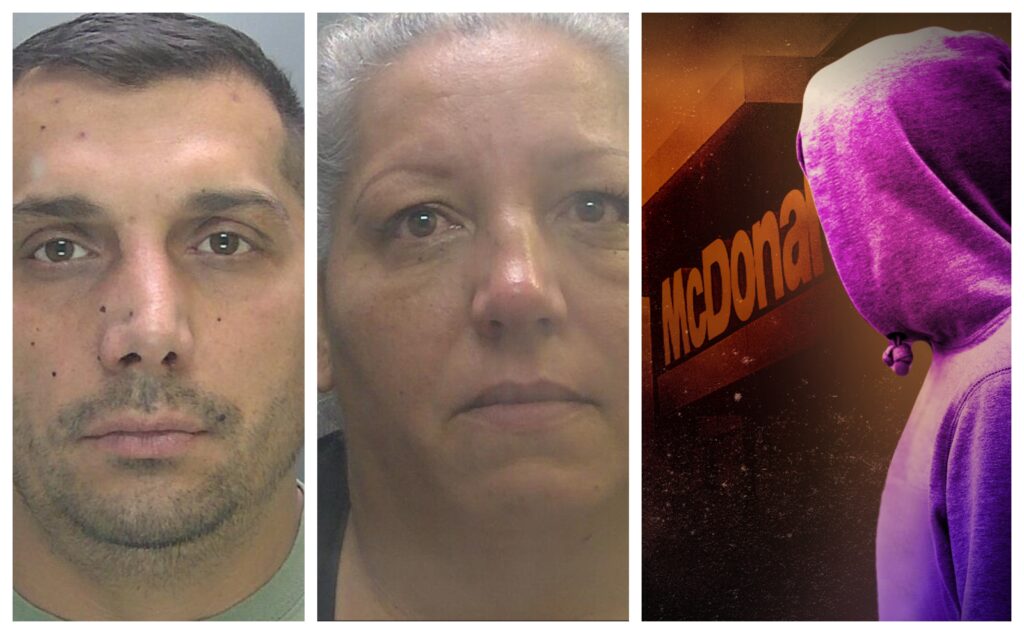
The Co-op said it made “a number” of unannounced inspections, including worker interviews, but found no signs of modern slavery, adding that the company “actively work to tackle the shocking issue … both in the UK and abroad”.
M&S said it suspended and delisted the company in 2020 after it “became aware of potential breaches of ethical labour standards via the modern slavery helpline”.
The Modern Slavery Act requires larger companies – including McDonald’s and the supermarkets, but not the factory – to publish annual statements outlining what they will do to tackle the issue.
Former Prime Minister Baroness Theresa May, who introduced the act as Home Secretary in 2015, accepted the law failed to protect victims in this case, saying it needs to be “beefed up”.
The former PM – who now leads the Global Commission on Modern Slavery and Human Trafficking – said the case was “frankly shocking” and shows “large companies not properly looking into their supply chains”.
The government said it would “set out next steps on the issue of modern slavery in due course”.
The full BBC investigation Slavery on the High Street can be watched on BBC One in London and the East region at 8:30pm on Monday 30 September, and on BBC iPlayer.
iPlayer link: https://www.bbc.co.uk/programmes/m0023h3b
It is estimated the couple stole at least £200,000 from the men over the four-year period.
In October 2019 police received information that workers at the restaurant were being exploited.
Specialist officers from the modern slavery team spoke to the victims at the restaurant on 23 October, with four of the men choosing to leave with the police. This was shortly followed by the fifth victim, and later a sixth.
All went through the National Referral Mechanism (NRM) process, which ensures victims of modern slavery are provided with support and protection.
An investigation into the exploitation took place, with the couple being arrested and their home searched.
Drevenak and Bubencikova denied six counts of holding a person in slavery or servitude, five counts of arranging or facilitating travel of another person with a view to exploitation and fraud by false representation.
In October they were found guilty following a trial at Cambridge Crown Court.
On Thursday, 7 December, at the same court Drevenak, of Howard Avenue, Bedford, was jailed for 12-and-a-half years and Bubencikova, of Upper Cambourne, for ten-and-a-half years.
Reporting on the case has been prevented until now due to reporting restrictions.
DC Nick Webber said: “This case goes to show that sadly slavery can happen anywhere.
“Drevenak and Bubencikova preyed on vulnerable people in the Czech Republic who were down on their luck. The idea of work and accommodation in the UK was the dream they were sold – something they didn’t feel they could turn down.
“Drevenak and Bubencikova pretended to befriend the victims and acted as though they were doing them a favour, while all the time stealing thousands of pounds from them. Their crimes will have a significant and long-lasting impact on the victims.
“We have been working closely with McDonalds during this investigation. When they recognised the loophole that allowed these offences to take place, they put measures in place to prevent it happening again and have provided significant support when relocating the victims.
“We need people to be aware of the signs of modern slavery and report any concerns they have. Please review the information on our website; taking action could help someone out of a desperate situation.
“I’d like to take this opportunity to thank everyone who supported this investigation.
“We are fortunate to have a Specialist Victim Care Co-ordinator dedicated to modern slavery who has been integral. The support they have given the victims during the investigation and throughout the trial has been vital.”
Cambridgeshire Constabulary’s website provides more information on modern slavery and signs to look out for.
Visit the Victim and Witness Hub website for more information on the support available.

